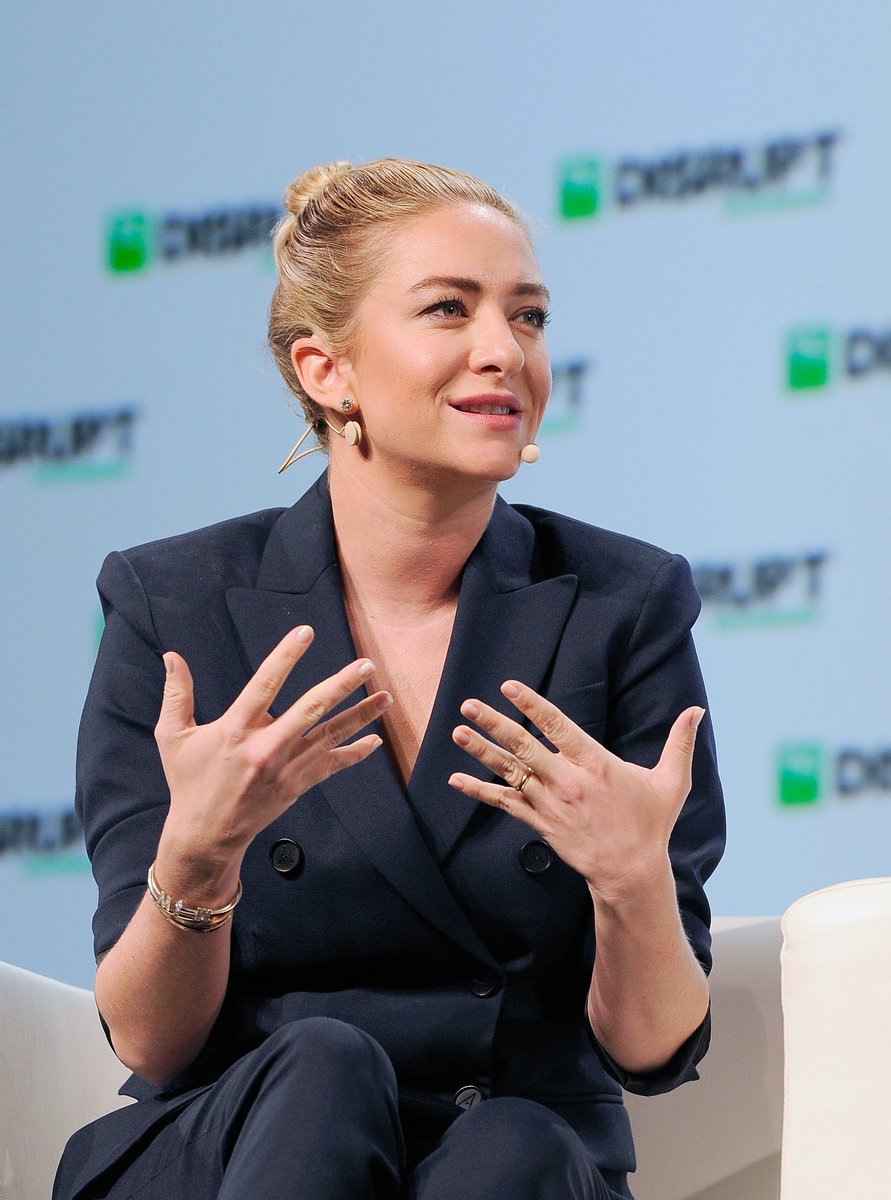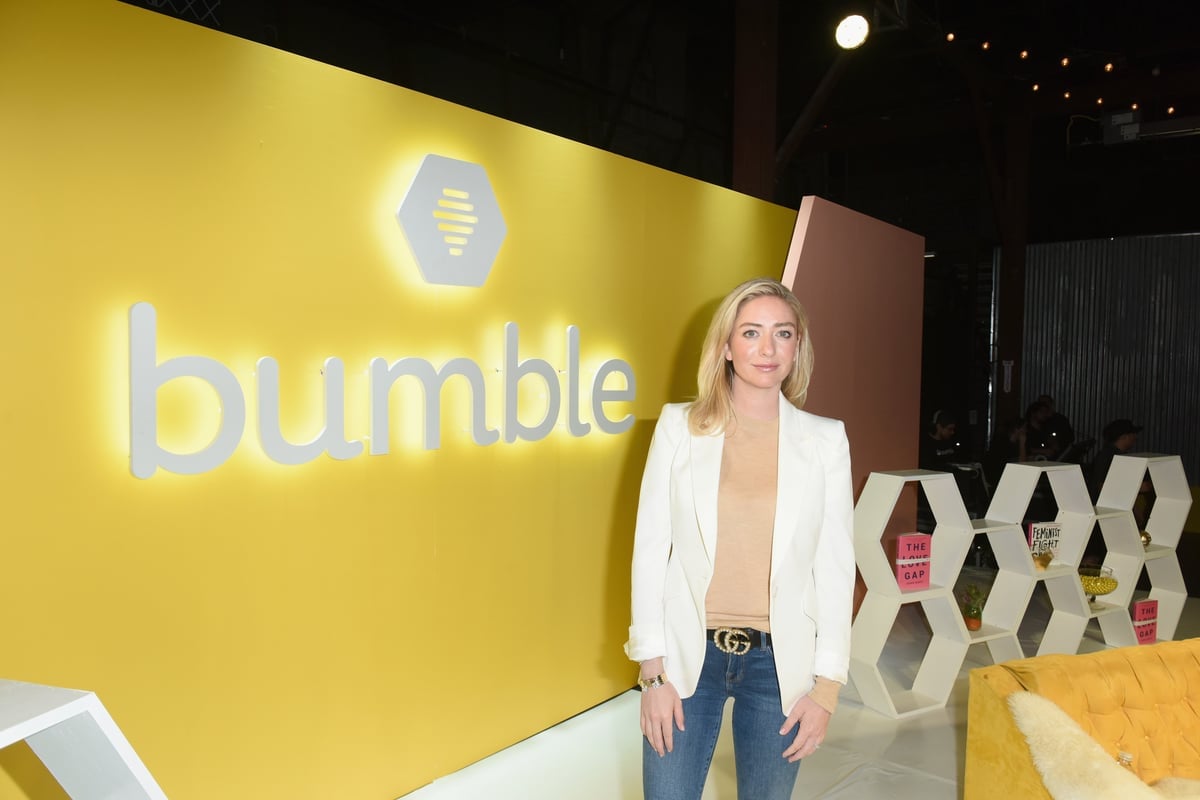
Whitney Wolfe Herd has created an empire.
Since starting Bumble in 2014, the app has drawn over 58 million users worldwide and in 2021, Wolfe Herd became the world's youngest self-made female billionaire after taking the company public.
But the lesser-known story is that Wolfe Herd started the dating app off the back of multiple instances of sexism, abuse and harassment.
This story is what inspired Swiped, a new movie directed by Rachel Lee Goldenberg, starring Lily James as the visionary entrepreneur who co-founded Tinder before launching its rival, Bumble.
Watch the trailer. Post continues after video.
The film chronicles Wolfe Herd's journey as she spearheads the launch of Tinder, experiences misogyny in the male-dominated tech industry, before she is ultimately pushed out of the company after being harassed by an ex-boyfriend and her company's co-founder, played by Tell Me Lies actor, Jackson White.
After being trashed in the media, with her reputation left in tatters, Whitney channels her rage into creating Bumble, a female-focused dating platform, and the success of the app makes her a self-made billionaire.






























































































